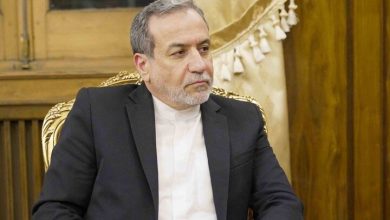Join or Die; Terrorist ISIS’s Message to Kurdish Islamist Clerics

ISIS has threatened Kurdish Islamic scholars and politicians with beheadings, fearing they will turn Kurdish Muslims in Iraq against the extremist group, E Kurd Daily Net reports.
On Jan. 26, ISIS released a video showing a Kurdish militant beheading a Peshmerga soldier. The executioner then threatened to cut off Kurdish Regional Government Pres. Masoud Barzani’s head.
“But as for you, oh Masoud, you dog, we are going to behead you and throw you into the trash bin of history,” said the fighter, later identified as Mofaq Asa’ad Askandar from the Zebari tribe.
The threats extend to clerics. To be sure, the Kurdish government has tried to use Muslim leaders to counter ISIS propaganda, and help discourage potential recruits. This is because the clerics’ messages strongly resonate among Muslims in Iraqi Kurdistan.
For its part, the terror group wants to show they’re not against the Kurds, but only those opposed to ISIS. Of course, if you do oppose ISIS, the terrorists will try to kill you.
After the terrorist group launched an all-out war against the Kurds in early August, several Kurdish Islamic scholars condemned ISIS, and declared that Peshmerga fighters who die in combat become martyrs.
“Someone who defends his country, and gets killed is a martyr,” Kurdish Imam Masoud told War Is Boring in January while visiting Peshmerga forces on the front lines close to Erbil.
In a recent video, he proclaimed the Peshmerga to be mujahideen—those who struggle for Allah and Islam.
“We do not fight Kurds because they are Kurds,” ISIS spokesman Abu Muhammed Al Adnani said in September. “Rather we fight the disbelievers amongst them, the allies of the crusaders and Jews in their war against the Muslims.”
Kurdish Mullah Shwan joined IS militants last year
Mullah Shwan, a cleric from Erbil who migrated to ISIS territory with his wife and children, promised in a video to take over Erbil. “With God’s permission, we will soon reach Hewler,” he said, using the modern Kurdish name for the city.
The Kurdish jihadist movement developed in the town of Halabja near the Iranian border in 1987. That’s when the Islamic Movement of Kurdistan called for a jihad against the Iraqi Baath regime.
The three main Kurdish Islamist political parties are the Kurdish Islamic Group, the Islamic Movement of Kurdistan and the Muslim Brotherhood-linked Islamic Union of Kurdistan.
For obvious reasons, ISIS’s online, Kurdish-language propaganda efforts focus heavily on these dispersed Kurdish Islamist militants.
“The ISIS is your only hope after God, have you not seen the treachery of the [Kurdish] Islamic parties against you, for what you have done?” stated a pro-ISIS Twitter account in August. “They have sold their afterlife for their dunya [material world] and disbelief in God.”
The message came during ISIS’s offensive into Kurdistan. As a result, the Kurdish government temporarily blocked Facebook and Twitter. That was to prevent ISIS sympathizers from using social media to frighten the local population.
ISIS also directs its outreach to Kurdish Muslim authorities. Some clerics—such as Mullah Shwan—have joined the terror group. But many others are militantly opposed to them.
Ali Qaradaghi, a founder of the Kurdish Muslim Brotherhood—and now the Qatar-based General Secretary of the Union of Islamic Scholars—condemned the ISIS on his Facebook page. In response, ISIS supporters declared it permissible to kill him.
Ali Bapir, the leader of the Kurdish Islamic Group, also urged ISIS not to attack Kurdistan. He called on Muslims to defend Kurdish territory. Bapir spent nearly two years in prison after the U.S. bombed the KIG’s headquarters in Khurmal in 2003.
“Defending religious life, people, and land, is a religious obligation, for that reason I urge all of you to be completely prepared and to do whatever it takes to protect the [Kurdistan] region,” he wrote.
Their statements provoked outrage among ISIS supporters. Awat Karkuky, a U.K.-based ISIS supporter, criticized Ali Bapir’s statement.
“Did you not remember these two holy verses when the U.S. was killing tens of your fellow brothers by missiles? Wasn’t this tyranny that the U.S. committed?” he wrote on Facebook.
But it’s not just a matter of debate. ISIS threatens to kill anyone who disagrees with them.
Mariwan Naqshbandi, spokesperson for the Ministry of Endowment and Religious Affairs in the Kurdistan region
Among those targeted for death threats is Mariwan Naqshbandi, spokesperson for the Ministry of Endowment and Religious Affairs in the Kurdistan region.
He said the threats began when the the terrorist group captured the towns of Makhour and Gwer on Aug. 6. Peshmerga troops have since launched counter-offensives into the region.
“When ISIS captured Gwer and Makhmour, I was publicly threatened with death,” Naqshbandi told War Is Boring. “At this time we were busy with Islamic scholars to prepare a discourse to response to the ISIS.”
““They believe if someone is an apostate, you have to kill him. So because—for them—I am someone who turned my back against Islam, my blood, or killing me, is permissible.””
ISIS also threatened Soran Omer—a parliament member of the Kurdish Islamic Group.
Omer is a former supporter of Mullah Krekar, the hardline founder of Salafist group Ansar Al Islam. Krekar now lives in Norway, where he served part of a five-year prison sentence for threatening Norwegian politicians.
Omer now supports Ali Bapir’s party. “It is true, after the invasion of Mosul, I was threatened through Facebook. Initially, I did not take it serious, and I suggested them to speak to me on Facebook,” he told War Is Boring.
“After talking 28 minutes with the Kurds that have joined Daish, the final conclusion was that we are apostates,” he said, using the Arabic name for the terror group.
“They believe if someone is an apostate, you have to kill him. So because—for them—I am someone who turned my back against Islam, my blood, or killing me, is permissible.”
Omer said statements from Kurdish Islamic politicians have discouraged youths from joining ISIS.




